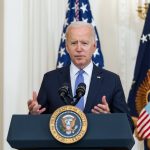Donald Trump’s relationship with the entertainment world has undergone a remarkable transformation over the years. Once celebrated as a charismatic figure on late-night shows and in interviews with prominent hosts like Oprah Winfrey and Charlie Rose, Trump was seen as a titan of the real estate industry and a source of entertainment charm. His appearances on TV, including cameos in films like Home Alone 2 and The Little Rascals, helped build his public persona as a successful businessman.
However, Trump’s entry into politics, particularly his run for the presidency as a Republican, marked a significant shift in how he was perceived by the entertainment industry. His long-held views on international finance and loyalty, which were once discussed candidly, became radicalized in the eyes of many. Critics began to portray him as a threat to social values, particularly regarding LGBTQ+ rights, despite his past interactions with openly gay individuals and his reception by the entertainment elite.
The irony of Trump’s consistent messaging about a rigged system is striking. For decades, he maintained this narrative, which initially earned him respect and curiosity from media outlets. However, once he secured the Republican nomination, these same networks drastically changed their tone, revealing what Trump and his supporters see as political bias. The shift from cozy chats to character assassinations highlights the complex interplay between politics and entertainment.
Trump’s interactions with comedians like Jimmy Fallon also illustrate this dynamic. A lighthearted moment where Fallon ruffled Trump’s hair was met with criticism, forcing Fallon to backtrack. This incident underscores how even innocuous gestures can be politicized in today’s entertainment landscape. As time passes, some in Hollywood are beginning to reassess their approach to Trump and their political biases, recognizing that portraying someone as a threat based solely on their political affiliation can backfire.
In recent years, Trump has expressed a desire to revitalize the entertainment industry, even appointing figures like Mel Gibson, Jon Voight, and Sylvester Stallone as his representatives in Hollywood. Despite these efforts, the industry remains wary, particularly given Trump’s broader policies on tariffs and deregulation, which could impact film and television production. As the entertainment world navigates these challenges, there is a growing call for a more balanced view, one that allows humor to return as a powerful tool in political discourse rather than outrage. Perhaps now is the time for the industry to step back, reassess the narratives it promotes, and find a way to engage with politics in a more nuanced manner.




